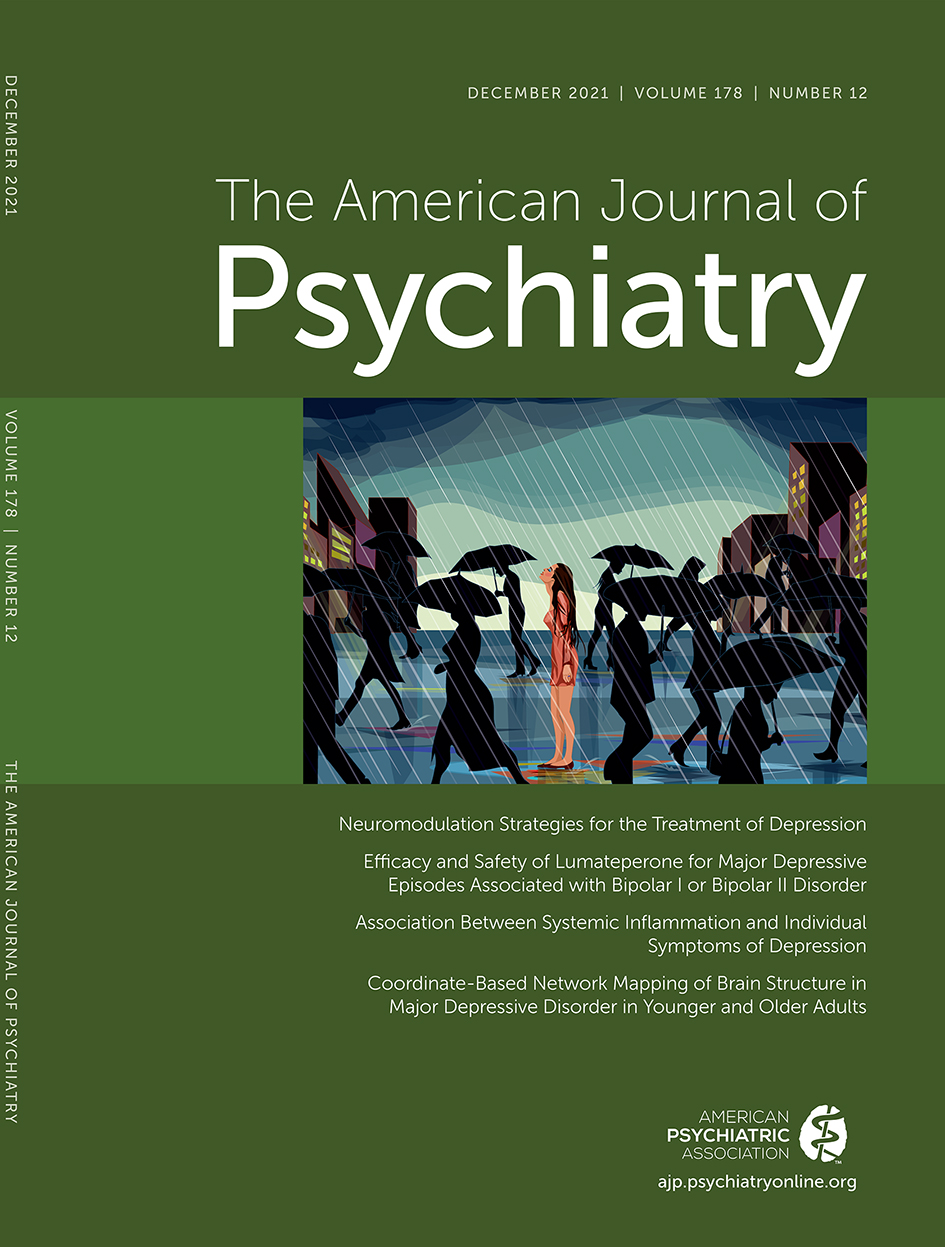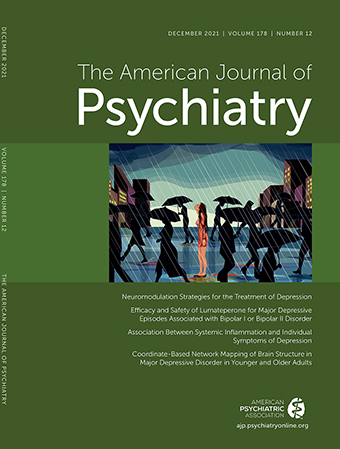TO THE EDITOR: The article by McIntyre et al. (
1) regarding ketamine was informative in many respects but also, I think, seriously inadequate regarding “ketamine’s positioning in the algorithmic treatment of TRD.”
Specifically, the authors state “the efficacy of other pharmacological strategies, such as combined antidepressants, lithium, or thyroxine, in adults with TRD has insufficient evidence. A pragmatic approach until such data are available is to consider ketamine or esketamine, or ECT or rTMS, for adults with TRD.”
The authors don’t mention that there is considerable data (
2) indicating that other antidepressants (either alone or combined), and augmenting agents such as lithium, thyroxine, etc., can help patients who have not responded to prior antidepressants, and that the reason that these alternative treatments have not been studied more is because they are generic, so there’s no financial incentive to do large studies to get U.S. Food and Drug Administration (FDA) approval for treatment-resistant depression. For patients who have not responded to two antidepressants, e.g., an SSRI and bupropion, there are many reasonable alternatives that are safer and much less complicated than ketamine, e.g., other classes of antidepressants, including SNRIs, mirtazapine, tricyclic antidepressants, and even MAO inhibitors, or augmentation with lithium, thyroid supplementation, or atypical antipsychotics. Since ketamine is a controlled drug with some abuse potential, since its very long-term effects (e.g., more than a year) are basically unknown, and since these other alternatives are much safer, it seems almost irresponsible to recommend ketamine for a patient who has failed just two antidepressants. Should spending by drug companies to get FDA approval outweigh common sense and judgment?
The authors describe themselves as “an international group of mood disorder experts.” I would not disagree with this, but a review of the Author and Article Information section indicates that the majority of these “experts” have some connection with ketamine treatment, e.g., drug company grants for studies, or patents related to ketamine. A review by experts who have some hesitation regarding the widespread use of ketamine, such as Alan Schatzberg, would be more objective and useful. The current Author and Article Information section tends to obscure rather than illuminate the relevant information, e.g., whether these authors have or expect to benefit financially from widespread use of ketamine and esketamine.
Ketamine may turn out to be the “wonder drug” that some believe it is, but it’s more likely, I think, that it will be a useful option prior to ECT, not before trying other medication options. Just as the opioid crisis exposed the effect of over marketing of opiates, I think that the widespread use of ketamine for patients who have not responded to two antidepressants would be a terrible thing for psychiatry and for most patients.

